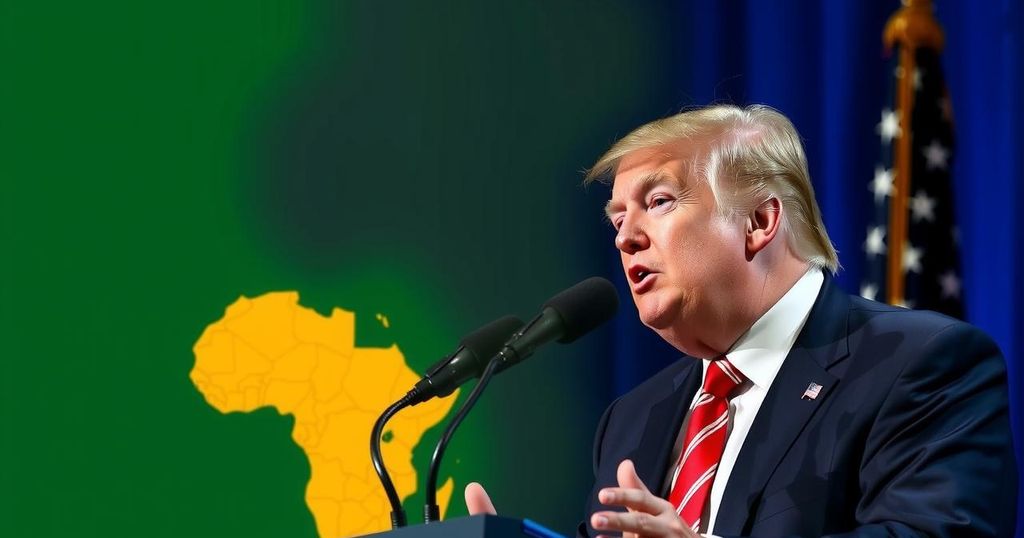Donald Trump’s President-elect: Shifts in U.S.-Africa Relations and Implications for Peace

Donald Trump’s return to the presidency brings uncertainties for Africa, as his transactional politics threaten traditional diplomacy. Past peacekeeping initiatives under previous administrations have stalled, and Trump’s focus on autocratic leaders raises concerns for democratic stability amidst ongoing conflicts. His administration’s stance on key African issues will significantly influence the continent’s political landscape and security dynamics.
The election of Donald Trump as President reflects potential shifts in U.S.-Africa relations, characterized by his preference for transactional politics rather than traditional diplomatic methods. Under Trump’s first administration, robust engagements with African institutions like the African Union waned, and critical peacekeeping missions were halted or scaled back. Promises of grand diplomatic frameworks gave way to direct negotiations favoring autocratic leaders, with a notable focus on securing bilateral agreements over multilateral approaches. Although some African nations appreciated Trump’s straightforwardness, his dealings prioritized immediate gains over longer-term democratic stability or humanitarian considerations. Amidst ongoing crises in countries such as Sudan and Ethiopia, the potential reignition of conflicts in Africa poses a serious concern, especially as regional powers, influenced by Trump’s policies, continue to jockey for leverage. As the second Trump administration looms, the implications of his foreign policy, particularly regarding Africa’s troubled conflicts and the influence of external actors like Russia, remain uncertain, bearing significant consequences for the continent’s stability and security.
The article examines the implications of Donald Trump’s electoral victory and its potential effects on Africa’s political landscape. It contrasts Trump’s transactional style of foreign policy with the previous approach of multilateral diplomacy fostered during the Obama administration, highlighting a trend where peacekeeping initiatives have been undermined. It also analyzes Trump’s interactions with various Middle Eastern and African leaders, noting how these relationships shape regional power dynamics and influence ongoing conflicts. The discussion raises awareness of the challenges faced by African nations amidst shifting U.S. policies that may not prioritize democratic governance or human rights.
In conclusion, Donald Trump’s approach to foreign policy represents a departure from cooperative multilateralism towards transactional dealings, which has far-reaching consequences for Africa. His past tendencies to favor autocrats and sideline comprehensive diplomatic frameworks have left African nations vulnerable amid escalating conflicts. As Trump prepares to enter his second term, the foundation for a peace-centered agenda remains precarious, with continued instability in regions like Sudan and Ethiopia potentially exacerbated by uncertain U.S. military and political commitments.
Original Source: www.bbc.com








